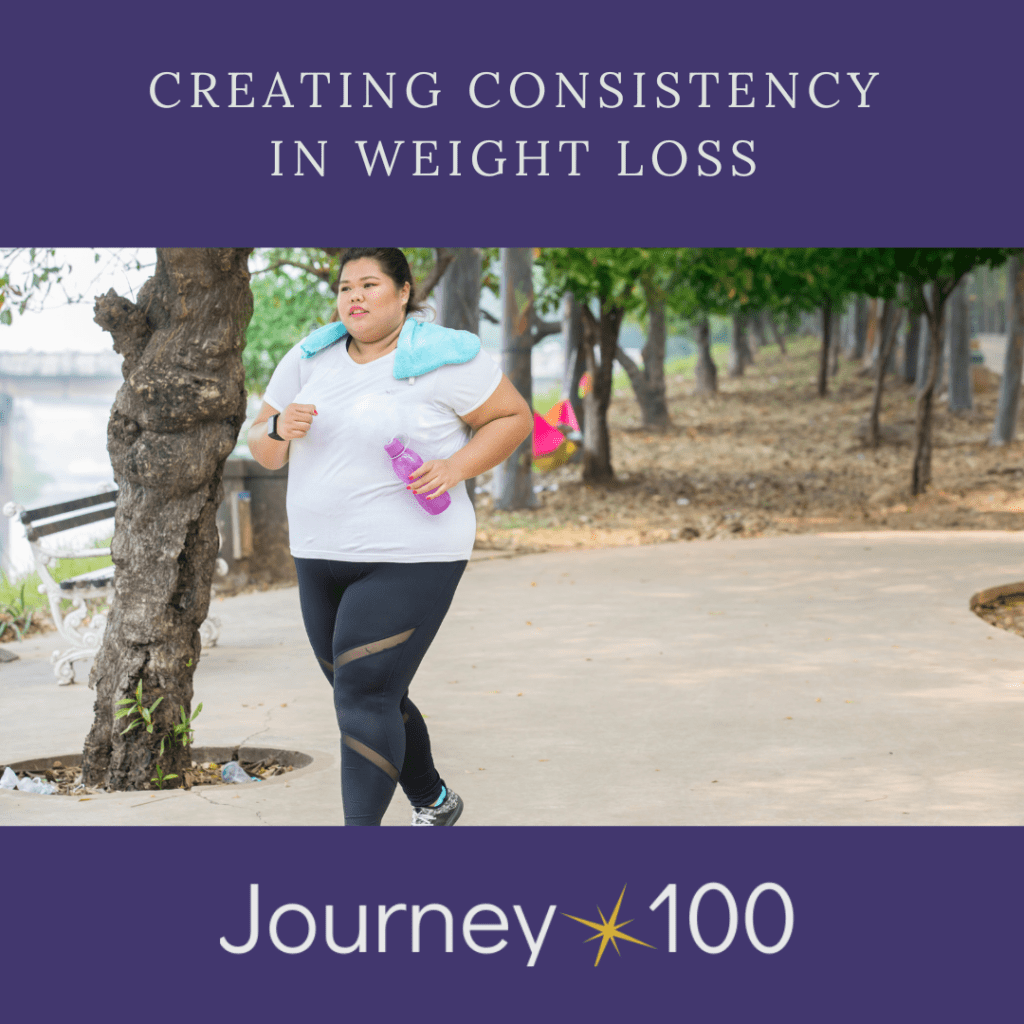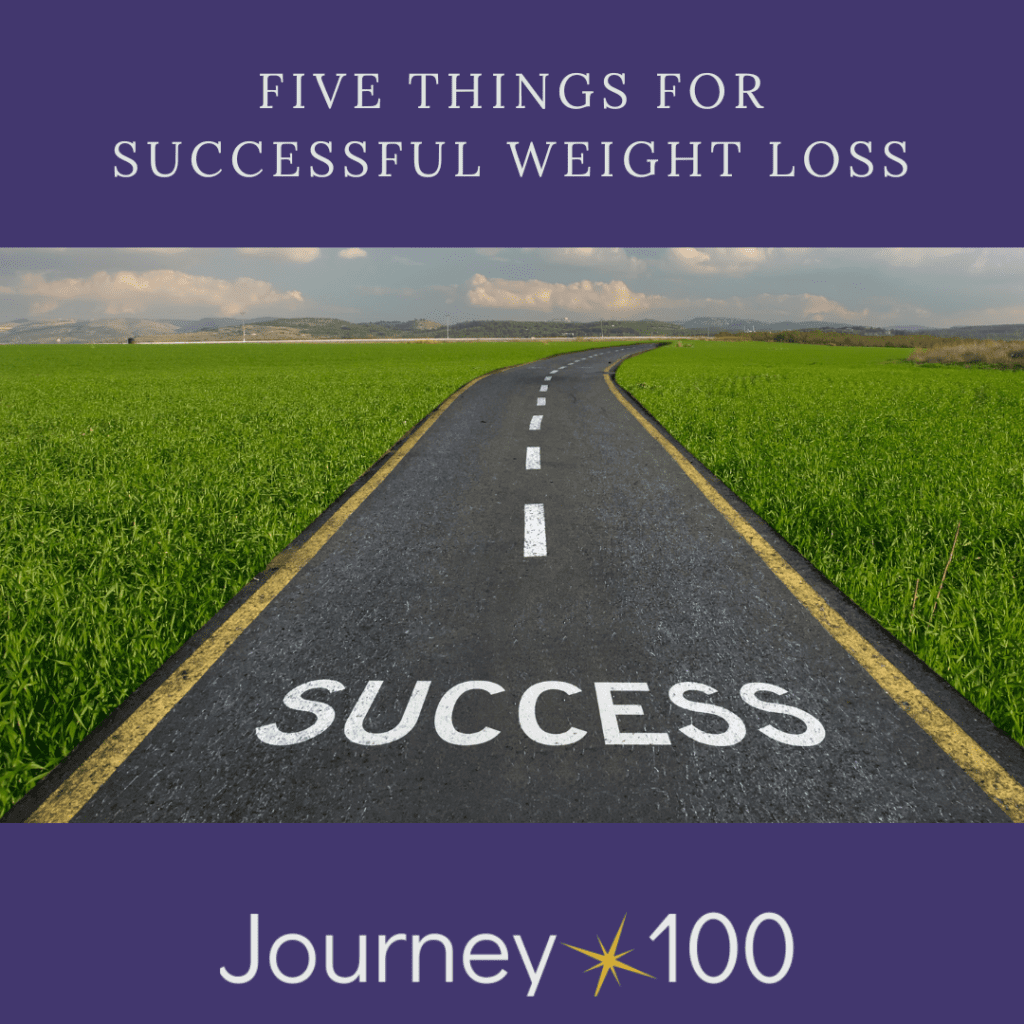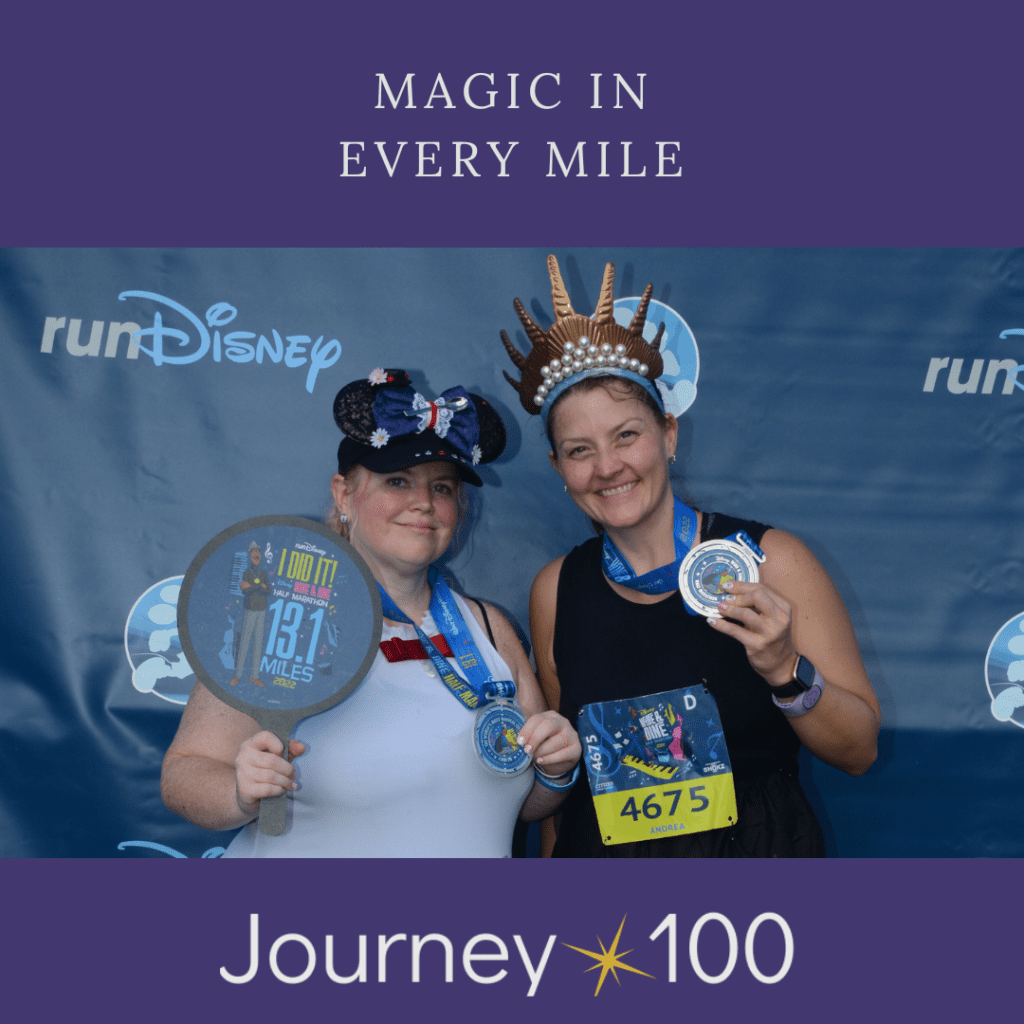How to stay on track over the weekends

For so many of my clients, weight loss seems to be easier Monday through Friday. There is structure and routine. During the week, it is easy to be focused but once the weekend comes, routine goes out the window! Here are five ways you can stay on track over the weekends: Make a plan While Saturday and Sunday might look different from the workweek, you probably have a general routine. Maybe you don’t wake up as early but you still get up around the same time every weekend. If you’re like me, you have kids that have sports the same time each weekend too. If you take five minutes at the start of each weekend day and brainstorm your commitments, where you will be for each meal time, and available options for food, you’ll be off to a good start in making a reasonable plan for yourself. Another important part to remember is making sure you stay hydrated over the weekend so make a plan for that too. Will you carry a water bottle around with you? Will you fill multiple water bottles and stash them around the house to remind you to drink water? Remembering to stay hydrated over the weekend will help you feel your best, have more energy and prevent snacking due to faux hunger (thirst). Anticipate the unexpected Weekends are more flexible and sometimes spur of the moment changes happen. That’s OK. You can be spontaneous and still make progress towards your weight loss goal. A spontaneous trip for ice cream doesn’t mean you have to order the largest sundae with extra chocolate fudge and whipped cream. In fact, a spontaneous trip for ice cream doesn’t actually mean you have to have ice cream at all. My 90 pound weight loss definitely included ice cream but sometimes it also included just loving the joy on my kid’s faces and being present in the moment without having any ice cream. Think about the past few months, what came up over the weekend that you threw you off your weight loss game? Make a plan for how you would ideally handle that if it came up again. Chances are those same challenges will present themselves again in the future. When you mentally rehearse for them, you’ve given yourself the instructions on how you want to handle it so you are better equipped for next time. Create a back on track plan Maybe you went face down into a pepperoni pizza and didn’t come back up until it was all gone. Maybe you’re feeling like you messed it all up and so you might as well eat whatever you want for the rest of the weekend. But hold on! Getting back on track is as much of an option as throwing in the towel is. You are a human being and sometimes you are going to make choices you wish you hadn’t. That’s OK. But don’t dwell there. Create a plan for yourself that helps you get back on track quickly. For me, I love to drink a glass of water and then go for a 15-minute walk. The hydration and moving my body really help to clear my mind. Plus it is two quick wins that I can feel good about! To create your back on track plan, think of one or two things you can do no matter where you are to help get quick win and get your head back in the game. Think something new So many of my clients like to say that the weekends are just harder. But says who? Sometimes we are just committed to the idea that they are harder simply because that’s what we always believed. How could they actually be easier? On the weekends, you may not have the structure and routine of the week but you might have a lot more time to workout, make a food plan or eat more slowly and enjoy your meals. Asking yourself how the weekends can be easier opens your mind to find more evidence that it actually IS easier. Encourage yourself to find ways that losing weight is actually easier over the weekends. Be patient with yourself If weekends have been a struggle for you, please be patient with yourself. Like learning anything new, these things take time. You won’t miraculously start going through your weekends flawlessly. You might still forget to drink water, make a food plan or move your body. That’s OK. The goal is progress, not perfection. If you do one thing better than the weekend before, cheer yourself on! Yay you! Then build on that winning momentum the next weekend. When you feel like you are winning, you keep trying. When you feel like you are losing, you quit. Look for your wins. Keep trying. And eventually you will learn to stay on track over the weekends and meet your weight loss goal. Your Coach, Andrea
Creating consistency in weight loss

Action is the currency of weight loss. You can’t do the same things you’ve always done and expect different results. And you most certainly cannot take different actions only once in a while and expect consistent results. If you want to reach your weight loss goal, you must be consistent. Consistency is what I coach clients on the most and so I have put together this list of five things you need to know for creating consistency in weight loss. Consistency is NOT perfection My clients often say they are not able to be consistent, when really they are being pretty consistent. Let’s say the goal is to drink 64oz of water each day and they are only doing it five days, instead of seven. Hate to break it to you but that IS being consistent. That is consistently meeting the goal for five days. There is a difference between wanting to increase the number days you meet the goal and being consistent. Too often we believe we are not being consistent in weight loss when we aren’t perfect. But that’s not the case! Consistency does not equal perfection. In fact, thinking you are not consistent because you aren’t perfect is defeating and causes you to quit. So recognize when you ARE being consistent and that will increase your desire to continue to be consistent as well as take more positive action towards your weight loss goal. Only make small, doable changes I get it. Being overweight can feel terrible. There is likely an urgency to want to be thinner NOW. But when you try to change everything about you, your routines, the foods you eat and the life you live, it takes a lot of energy and won’t last for long. Too many weight loss journeys fail because they are trying to use willpower to muscle through changing everything about themselves and their lives. Don’t do that to yourself. The greatest gift you can give yourself is acceptance of where you are. Take the pressure off of needing to be anything else. You can accept where you are and still make positive change. The best way to make that positive change is to make the changes small and level up when you get really good at that change. Small, doable changes make weight loss feel really manageable and allows you to collect tons of wins. And when you are winning, you know what? You feel like taking more action. And taking more action leads to more weight loss. Use multiple ways to measure your success The scale is not king of your weight loss journey. The diet industry has brainwashed us all by using the scale as the number one measurement of success. But you’re setting yourself up for defeat if that is the only way you measure your weight loss. Scales are a lagging measure of the actions you take. It may take weeks for the scale to reflect the fruits and veggies you’ve been eating or the workouts you completed. I highly recommend using a habit tracker to measure your actions and use that as a sign of your weight loss progress. You can also track your moods, body measurements, clothing fit and use before and after photos too. Expect to not feel like it Consistency often wains when we “don’t feel like it.” But what if “feeling like it” wasn’t required? What if you could take action anyway? Well, you can! It’s great to feel motivated and excited when you first start a new diet or exercise plan, but once that wears off and boredom sets in, it can feel difficult to keep taking action. It has taken over 3 years for me to reach my weight loss goal. There have been a lot of times that I didn’t want to work out or eat the food I planned. And you know what? I was still able to do it. When motivation wains (and it will), you have to be able to rely on commitment and discipline to see it through. One of the greatest gifts you can give yourself is to remain committed and disciplined through that time. As you continue to take action, even when you don’t feel like it, that motivation will return and this time with a giant side of pride. Remain focused and keep going no matter what When you focus on the problem on your weight loss journey, you’ll find more of them. When you focus on the solutions, you’ll find more weight loss. Recognize when you are being inconsistent and figure out what you can do to become more consistent. Focusing on how to be more consistent creates more consistent action and more consistent results in your weight loss journey. When I started my weight loss journey in 2019, I simply decided that I was going to figure it out no matter what. When I overate or missed a workout, I got curious with myself and figured out how to move forward. You can choose the same. There is no need to beat yourself up for being inconsistent. Remain focused on your weight loss goal and allow yourself to be curious and find a different way going forward. After all, if you continue to do the same things, you’ll get the same results. What’s getting in your way of being consistent? Your Coach, Andrea
The ONE thing you need to start losing weight

People overcomplicate weight loss all the time. But to get started and to keep going, you really only need one thing: Belief. It’s absolutely true. Believing that you can lose weight is the ONE thing you need. You don’t need a food scale, a bathroom scale or a calorie counting app to get started. All you need is to believe. You might be thinking, it’s really not that easy. But I promise that to begin your journey, that’s all you need. You would never start a diet if you didn’t believe YOU could do it. You would never start an exercise routine unless you thought YOU were capable of getting results from it. It all starts with belief. And you know what? It all ends when belief goes away. You stop following the diet when you believe it is no longer working. You stop working out when you stop believing that you’ll get the results you desire. Belief is the fuel for you weight loss journey. When you believe in yourself and the ability for you to get results, you take action. If that belief falls away, then you stop taking the action. It was a very powerful moment in my life when I realized that belief was fueling everything. I had experienced success on diets before and couldn’t seem to figure out why I eventually stopped being successful and put the weight back on. Then one day it hit me: I quit believing in it and stopped taking action. There was nothing wrong with me. I wasn’t broken. I wasn’t doomed to be fat for the rest of my life. I simply stopped believing. Just as easily as I can choose to believe in something, I can choose not to believe too. And whether or not I believe, determines how I’m showing up and the results I get. As scary as that might seem, it’s actually the best news ever. I no longer had the responsibility of finding the perfect diet or exercise plan. I simply needed to practice belief. Belief in myself and belief that I could figure this out no matter how long it took. With those beliefs I found safety in trying new things and seeing what worked well with my life. I was able to look at my habits and see which ones were helping on my weight loss journey and which ones weren’t. I could take my time and figure it out because I had the belief that I would figure it all out and reach my weight loss goal no matter what. If you are struggling with belief in yourself, here are a few things to try: Read other people’s weight loss success stories for inspiration Write a list of 100 things you’ve been successful at (nothing is too small) Use motivational quotes to inspire you Begin with practicing the thought “I’m willing to believe I can do this” Reach out for help by scheduling a call with me! How do you practice belief in yourself? Your Coach, Andrea
Why weight loss goals suck

One of the most influential books on my weight loss journey was Atomic Habits by James Clear. His take on setting weight loss goals blew my mind and helped me to set my weight loss journey up for success. Basically Atomic Habits says that goals (including weight loss goals) suck and don’t help you achieve lasting results. Here are four reasons why weight loss goals suck: Winners and losers have the same goal Millions of people set the goal to lose weight each year. Some of them are successful and many are not. It’s not the goal that makes you successful. But we often see the people on the Today Show, Instagram or Facebook that set a goal of losing 100 pounds and actually did it! We can often credit the big goal and their why being big enough as the reason they were successful. But that’s not true. Like I said, millions of people set the same goals and often have the same meaningful (or more so) reasons why they want to accomplish that goal and still fail. Achieving a goal is only a momentary change How many times have you or someone you know achieved a weight loss goal only to put the weight back on and then some? Want an example? I wanted to lose 30 pounds for my wedding. Did I do it? I sure did. I also put the weight back on and then some after I said “I do” because the goal had been attained and I stopped doing the things it took to maintain that weight loss. Setting and achieving the weight loss goal did not change how I normally lived my life in an overweight body. It only provided a temporary period of time where I made different choices to achieve a specific result. Want another personal example? I ran a full marathon in 2015. It was my goal to just cross the finish line. I found a training plan and religiously stuck to it. I did not think of myself as an athlete or even someone that loved to run. Honestly, I identified as someone that does hard things…but just once and just to say I did it. So once I crossed that finish line, I quit running. I did the hard thing and now it was time to go back to my normal programming of eating a bit too much and being sedentary. Cue no more running and putting on close to 80 pounds. Goals restrict your happiness Especially with weight loss, many of us think that we can only be happy when we’ve achieved our ideal weight. This even seeps into our weekly and sometimes daily lives as we weigh ourselves. If I reach my two-pound weight loss goal this week, then I can be happy. If I don’t lose at least two pounds then I will wallow in shame. Goals create a very restrictive “either-or” situation. You either get to feel happy for achieving the goal or miserable because you didn’t. What’s a girl to do? James Clear suggests that instead of setting goals, you should fall in love with the process that produces the result of the goal you wanted to achieve. For me, this meant that I fell in love with make a daily food plan and journaling each morning. I came to value that time as the way I set my day up for success. It was my me-time. It was the best way to start each and every one of my days. Goals are at odds with long term progress The purpose of a goal is to achieve it. Or in other words, win the game. Once you win the game, what’s left? Time to pack up your things, go home and relax. And that’s exactly what many of us do. We achieve the goal, only to stop doing the things that helped us achieve the goal. There is nothing left motivating us or driving our actions. Remember the marathon example? I stopped running. I had already won the prize. I had my marathon medal and it was time to pack up my running shoes and go back home to be my pre-marathon self. Instead James Clear says the magic is changing how you perceive yourself. Start identifying as the type of person that achieves the goal you want to complete. In the marathon example, if I started identifying as a runner, I would set up a running routine because running is important to me and I love how I feel when I run. I would crave hitting the pavement after a long day. I would think of my runs as my me-time and maybe even become besties with the other runners in the neighborhood. When you start identifying as a runner, you start doing the things that runners do. This enables you to attain the goal AND continue with the habits and processes you put in place because that is now a part of who you are. Instead of setting a weight loss goal, think about who you need to become to be a person that maintains a healthy weight. How do they start their days? What do they eat? What thoughts do they think throughout their day? What makes their days enjoyable? How do they enjoy moving their body? What do they do that allows them to enjoy vibrant health each day? If you would like help in evolving into the person that effortlessly maintains a healthy weight, I can help you. Sign up for a call with me and let’s get started. Your Coach, Andrea
Three steps to stop eating when not hungry

Eating when you are not hungry equals weight gain. And if you are on a weight loss journey that is a recipe for disaster! But how do you stop eating when you aren’t hungry? Follow these three steps to get back in tune with your body and stop eating when you aren’t hungry: Step One: Identify your hunger signs The first step to stop eating when you are not hungry is to figure out if you really are hungry. For many women this can actually be quite difficult. You’ve spent years eating by the clock, eating to relieve stress or eating because it simply feels good. To determine if you are physically hungry, drop into your body. What does that look like? Close your eyes. Ask yourself where do I feel hungry? For me, I know I am truly hungry when the middle of my abdomen feels a little tight. I also get slight growls in my stomach. If I have been truly hungry for a bit then the hunger starts appearing in the front of my head as a slight headache and I will feel my energy levels begin to dip. On the other hand, these physical sensations are not present when I am not hungry. Instead I will find myself “tasting” food in my mouth, like daydreaming about how good a Reese’s peanut butter cup would be right now. Sometimes when I am not hungry but WANT to eat, I will ask myself “Am I hungry?” and then soon enough I will feel a little tingle in my stomach. This is phantom hunger. It’s like a little ghost of hunger that comes pretty quickly after I get a craving for something. This isn’t true hunger. How do I know? Go to step two. Step Two: Take an inventory of your circumstance When I find myself wanting to eat when I’m not physically hungry, I take a moment to figure out what is going on in my life. One great way to do this is ask yourself “If I wasn’t going to eat right now, what would I be doing?” So often that 3pm hunger is actually being tired of work and not wanting to start another work task. In the evenings, I would be left alone with my thoughts about what I screwed up during the day, what’s left to be done tomorrow or thoughts of how I’m so exhausted and nothing really feels good in my life. Other times, I am just plain bored and want to be entertained! Once you figure out if you want to eat to avoid something in your life, then solve for that. If I am tired of work and don’t want to start another work task, then I take a 15-minute break and go for a walk, meditate or watch a couple silly tiktok videos (be sure to set a timer and don’t go beyond the 15 minutes!). If I’ve put the kids to bed and I don’t want to be left alone with my troubling thoughts, I break out my journal, jot down a quick to-do list for the next day, tell myself I’m a good wife and mother, then give myself permission to rest and relax. If I want to be entertained, then I snuggle in a blanket and watch my favorite show. Understanding what you truly need in that moment will help you understand and care for yourself better. When you start solving for what is actually bothering you, the less you will feel driven to eat at times when you are not hungry. If you’ve identified the non-food reason you want to eat when you aren’t hungry but still feel compelled to eat, continue to step three. Step Three: Do a hard reset Our brains present persistent thoughts of wanting to eat when we are not hungry simply because it is trying to avoid something in our life (see step two) AND there is not much else for it to do. On my weight loss journey, I found that continuing to push through and simply NOT eat was difficult. This was especially the case when I started working from home during COVID. I worked in the living room and thoughts about what was in the fridge started popping into my head. I’d ask myself “What would I be doing if I wasn’t eating” and the answer would generally be doing a work task. So I would acknowledge I didn’t want to do the work task, take a little break and then start the task anyway. But the thoughts kept coming. In those instances, I gave myself a protocol to help me reset. I would chug a giant glass of water, get outdoors for a five-minute walk and talk to myself. The magic in the reset is creating different sensations for yourself. The glass of water will help your body feel different on the inside (fuller and maybe colder). Getting outdoors will help you feel different on the outside (sun on your skin, wind on your face, maybe it’s warmer or cooler than your home). Finally talking to yourself. Be very specific in the things you say. This is a time to speak to yourself kindly and cheer yourself on. I often say “I’m so proud that I took this time to reset. I’m so glad that I am choosing my bigger goal over something I want in this moment. This is what self care looks like and I’m so happy I made this choice.” Final reminder: Even if you eat when you are not hungry, remember that it will never help to be unkind or berate yourself. Your weight loss journey will never be a straight line to your goal weight. Be open to learning when things don’t go as expected. If you are learning then you are always moving forward with better knowledge for the future. If you struggle with eating when you are not hungry, I can help. Schedule
Five things for successful weight loss

Millions of people try losing weight each year with the end goal in mind. A certain number of pounds lost, a particular pant size or a dress they are trying to wear for a special occasion. But it’s much more important to have the right start to your weight loss journey. Here are five things you need to be successful in weight loss: Belief that you can do it It’s essential for successful weight loss that you believe YOU can do it. This is different than thinking you found the right diet that will shed pounds quickly or the right exercise routine that will give you washboard abs. This is the belief that you can follow the plan and stick with it. This is the belief that you are willing and able to do the work. Fake it until you make it doesn’t apply here. That will only lead to success over a couple of months then inevitably quitting and undoing any progress you made. Don’t worry. If your belief is a little shaky, that’s OK. You don’t have to believe that you are able to do it for your ENTIRE weight loss journey. But can you start with the belief in you today? Can you stick to it today? Then ask yourself the same question for tomorrow….then the next day and the next…and before you know it you’ve grown your belief in your weight loss abilities. Acceptance that you won’t always be perfect Decide right from day one that you won’t always be perfect and that’s OK. I have lost over 90 pounds and I had many days that I ate off plan or overate. I decided that I wouldn’t let that be a reason to think I was broken or incapable of losing weight. I simply made that mean that I was a human that made a choice that didn’t align with my goal. I didn’t have to be perfect but I did need to get back on-track as soon as possible. You won’t always be perfect either. Accepting that from the beginning takes a lot of the drama out of it. Treat it as an event you knew was coming then get back on track as soon as possible. It’s like being on a car trip. You might get a flat tire at some point. It’s something that happens but isn’t a reason to quit going onto your destination and live on the side of the road for the rest of your life. You put your spare tire onto the car and get moving again. You have that choice on your weight loss journey as well. You can choose to eat on plan for the very next meal and keep on moving onto your weight loss goal. Be open to trying different things If you do the same things you have always done, you’ll get the very same results you already have. Being success in weight loss requires eating and drinking in ways that are different than what you’ve been doing. It doesn’t take a complete 180-degree turnaround to get different results but it does require small changes. The very first thing I ask my clients to do is to ask themselves before every meal “Am I hungry?” If the answer is yes, eat. If the answer is no, wait until you are hungry. They are amazed at what a difference it makes just asking themselves this small question. Really open your mind to all the possibilities for change. You could drink a few more sips of water, leave a couple bites behind at each meal, switch to whole grain bread or walk for fifteen minutes each day. Be careful not to think that these actions are too small to amount to any weight loss. Every small action adds up. Plus it makes your journey more enjoyable since you aren’t having to rely on Herculean willpower to muster through. Decide to figure it out Maybe the things you tried didn’t result in weight loss. Again, not a big deal. Change it up and see what DOES work. The problem with diets and exercise plans is that they don’t take into account the individual person. The way I teach weight loss is custom to YOU. You are the expert in your weight loss and I help you find that inner wisdom that defines weight loss on your own terms. Because when you define weight loss on your own terms, you lose all your weight without any fear of it ever returning. So get curious when you stop losing weight. Ask yourself what contributed to that. Find something new to try next that will give you a different result. Your weight loss journey will change along the way and willingness to figure it out is required to be successful. Love yourself no matter what Starting your weight loss journey with self-hate or loathing for your body is a recipe for disaster. You don’t have to go from hating yourself to loving yourself. Just stop the hateful comments. When I was 250-pounds and hated the way I looked, I simply made an agreement with myself to stop saying hateful things. I didn’t have to change it to something loving. I just said to myself “I don’t think that way anymore.” Then as my journey progressed and I gained for confidence and love for myself, I was able to say loving things instead. The amazing thing is that your brain cannot think two thoughts at the same time. As soon as you start thinking something new, the other thought is gone. Here’s why loving yourself is so important. Think about going in for a performance evaluation and your boss tells you how much he hates you and everything you do is wrong. Then he demands that you make huge changes. How likely is it that you will rise up to meet his demands? I don’t know about you but I’d be searching for a new job! Now imagine that a
How to get back on track after Thanksgiving

The day after Thanksgiving can be a day of regret for those on a weight loss journey. Many of my clients stray from their protocols or have too much to eat. Here’s a simple three step process for getting back on track after Thanksgiving: Calm down Thanksgiving is one single day. Not the end of the world. Whatever happened on Thanksgiving can simply remain in the past and not affect how you show up today. Getting back on track after Thanksgiving is equally an option as continuing to overeat throughout the rest of the holiday season. You’re not a failure, weak willed or doomed to being overweight for the rest of your life. Take a few deep breaths and remind yourself that you are worthy no matter what. Analyze without judgement Next, think about yesterday and which choices you wish you could change. Maybe it would have been only having one plate of food or skipping the piece of pie. Ask yourself what contributed to those choices? Was it wanting to please someone else? Not wanting to say no? Maybe you didn’t want to feel left out? There are no right or wrong answers. It’s just information. Information that helps you better understand yourself. When you understand yourself better, you can make better choices. Then replay yesterday in your mind and envision yourself making better choices. If you need help thinking of how you could have done things differently, check out this post on Weight Loss and the Holidays. Remember getting back on track is an option Finally, remind yourself that even though you might wish things had gone differently, you are still capable of reaching your weight loss goals. Your journey will be full of ups and learning moments. This is your learning moment. You can learn from this and get back on track for your weight loss goal. Then move forward committed to making decisions today that are loving and supportive of your weight loss goals. If taking loving responsibility is difficult for you, I can help. Being able to understand your actions and getting back on track without shaming yourself is what makes the difference between reaching your weight loss goal or spinning in a weight loss/gain cycle for years. Sign up for a call with me to get started today. Your Coach, Andrea
Magic in Every Mile

This past weekend I ran the runDisney Wine and Dine Half Marathon and 5k. At the race expo they had tons of merchandise with “Magic in every mile” emblazoned on it. At first, I thought it was a cute saying. But as I ran along the 13.1 mile course, the idea came to me: Magic in every mile is exactly what keeps runners going all the way to the finish line! I often have used the saying “A journey of one thousand miles begins with a single step” as a way to remind myself that it’s the small stuff that add up to get you where you want to go. But a journey of one thousand miles ends up being two-million steps. How do you keep motivated? Find magic in every mile. When we started our half marathon, I knew it was going to take us over three hours to complete it. That’s a long time! I needed ways to entertain myself and make it fun. Otherwise, my brain likes to start dwelling on how long it’s going to take, what’s wrong with the weather and how tired I am. And THAT is a recipe for feeling terrible and wanting to quit. So I found ways to make it fun. I dressed up as Ursula so I scoured the crowds looking for other Ursulas or Ariels and cheering them on. I even asked them to take photos with me! Same thing goes for your weight loss journey. It feels a whole lot better to make the process fun rather than focusing on how long it will take and foods you can’t eat (P.S. I teach you how to lose weight eating anything you want! So if this is YOU, let’s talk). Find others who are also building healthier eating habits, call out to them and cheer each other on! Get excited for the new recipes or exercises that you use along the way. Find your supporters Disney employees were out on the course with cowbells and clappers cheering us on. And boy, did I embrace it! I waved and said good morning. I whole heartedly thanked them for being out there. I told myself that they were there just for me. I completely ignored the fact that I was running with thousands of other people and that the employees were just clapping and cheering because Disney paid them to do it. You can do the same! Instead of thinking that your husband is “just saying” that he thinks you look thinner or your friend admires your dedication to your work outs, really take a moment to appreciate their support. Take none of it for granted. It all matters. Tell yourself it’s fun People in general can tend to focus on the negative. Our brains were designed to find problems so we could live another day. When you are running a half marathon, there are TONS of negative things to focus on. For instance, it rained on us while we waited 45-minutes before crossing the start line. Then it got hot for a couple miles while we ran on a boring stretch of highway. There were parts where the road was so narrow you couldn’t help but bump into other runners and walkers with every move you made. Plus the fact that we were running over 13 miles and your body starts chaffing, hurting, and pretty much dying. But what you focus on is always a choice. And what you focus on, you find more evidence for. I decided I was going to have fun during this race. It’s not every day you get to run a Disney race and I wanted to love every minute of it. I took selfies while characters posed with other people (I had NO time to stand in lines for my own pictures….otherwise the sag wagon would have swept me!) I looked around the parks in amazement as I ran through them. I reminded myself how lucky I was to have enough money and a loving husband to watch our four kids while I went and ran with Mickey. The more I told myself that I was having fun, the more fun I had. They told me there was magic in every mile but it was really up to me to find it. If you are having trouble finding magic on your weight loss journey, I can help. I help my clients find joy and happiness while losing weight and I can help you do the same. Sign up for a free session with me to find out how.
How visualization can help you lose weight

A powerful tool you can use on your weight loss journey is visualization. I often tell my clients that our thoughts are the instruction manuals for our brains but that doesn’t just include the sentences we tell ourselves. Our brains are powerful machines. You can reinforce those thoughts, create more desire, strengthen commitment and increase motivation by using visualization. Here is how visualization can help you lose weight: Instructions for your brain First, visualization is a process of seeing images in your mind. If you think about a tree, chances are you are able to visualize a tree in your mind. Words when paired with visual images tell a complete story. Your brain has a complete story of what you want on your weight loss journey when you pair your thoughts along with visual images. When your brain clearly understands the goal, it is free to start going after the solution and paving a way to achieve that goal. If you are unsure of where to begin with visualization of your weight loss goal, start with visualizing yourself looking into a mirror. Visualize how your stomach is smaller, your legs slimmer and maybe your cheeks less round. You can envision yourself in smaller clothes or maybe even visualize your current clothing fitting looser on your smaller-sized body. For more advanced visualization, envision yourself going throughout your day. How do you get out of bed? How do you go down the stairs? What does it look like getting in and out of your car? Envision yourself going through these daily activities in your slimmer body. Create desire Visualization also helps create desire on your weight loss journey. Many of my clients blame their reason why for not being compelling enough and why they choose to quit. More often it is because they have not spent enough time thinking about their why and creating a strong relationship with it. The more you think about the reason why you want to lose weight, the more important and desirable it becomes to you. Thinking about your reason only on January 1st is a recipe for remaining the same. But if you think about your reason every single day of the month for an entire year, you’ll build desire and commitment to that goal. Another great way to build that desire for your weight loss goal is to visualize yourself at your goal weight daily. Envision yourself enjoying your new slimmer body. Think of the different activities you’ll engage in, that your weight currently holds you back. Visualize yourself in clothes that you love and feeling confident in them. Create a vision in your mind of yourself that you truly want and are excited to experience. Find solutions to obstacles You can also use visualization as role play for situations you find tough to deal with in real life. Let’s say that you struggle with leaving restaurants overly stuffed. Visualization can be an amazing tool to walk through going to the restaurant and taking a to-go box home with half of your meal inside. It’s a lot easier to visualize that action in your mind when the delicious food isn’t sitting in front of you. Again, the visualization becomes the instruction manual for real life. Once you get comfortable packing up half of the meal into the to-go container in your mind, you can do it more easily in real life because your brain already knows the clear instructions on how to do it. Help keep yourself going Motivation can come and go on your weight loss journey and that’s totally normal. Sometimes getting your shoes on is the hardest part of the workout. Visualizing yourself putting on the shoes, completing the workout and seeing yourself be proud of that accomplishment can be a great way to get yourself motivated to take that positive action again. Not only that but visualizing yourself at your goal weight helps remind yourself of what today’s action can result in. If you are lacking in motivation, you can return to feeling motivated by visualizing a time when you felt really motivated. Picture where you were, what you were doing and how the feeling of motivation felt in your body. Of course, along with that visualization, tap into the thoughts you were telling yourself at that time so you have a really clear picture of that motivation. Together these two things are a great way to return to that motivated state and keep yourself going on your weight loss journey. Have you tried visualizing yourself at your weight loss goal? Comment below. Your Coach, Andrea
How to find your why for losing weight

When people are struggling to lose weight, I often hear them say that they don’t have a compelling enough reason why they want to lose weight. Your why can often be the reason you choose to continue on your weight loss journey even when you don’t feel like it. It is a reason greater than your desire to skip the workout or eat the chocolate cake. If you don’t have one, I am going to tell you exactly how to find your why for losing weight. Don’t just think of a number on the scale and the clothing you’ll wear. Weight loss can have an effect on far more than that! In fact, I will challenge you to throw out the idea that one powerful why is supposed to carry you throughout your journey. You can, and should, have many whys. To create a list of whys, think of the areas of your life listed below: Family Many women I work with are used to putting others ahead of themselves. Thinking how their family members need them at their healthiest is an easy place to find a meaningful why. At my highest of 250 pounds, I felt like a fraud. I wanted to be a good example of health for my children but I was inactive and ate junk food all the time. Creating alignment in my actions and my teachings was very motivating for me. It’s also worth considering your extended family and parents. My parents are in retirement and their mobility is starting to decline. One of my reasons why I wanted to lose weight is to be able to take care of them. Many caretakers have to assist loved ones in and out of cars or beds. I want to be able to do that without injuring myself in the process. I also want to be as healthy and free of ailments myself so that I can focus on keeping them well taken care of. Romance Consider how your romantic relationship, or the prospect of one, might change when you lose weight. I’m married and I certainly want to be around for a very long time with my husband. I want us to be vibrant and healthy in our retirement years so we can travel the world. I also want to be my healthiest so I can feel well and interact with him as my best self. At my highest weight, I had terrible heart burn and it was a struggle to get to sleep. Then once I got to sleep, my hips and knees would ache so it was difficult to stay asleep. I was constantly tired and irritable. I hardly ever interacted with my husband as my best self. Now, on a vain note, plenty of whys can come from the bedroom too. Looking good in lingerie and having the confidence to make love with the lights on could be whys. For me, I wanted to feel comfortable in my own skin and fully enjoy those moments with my husband without being distracted by the self critical dialogue in my head. Friends This is another great area in your life that you can find a weight loss why. Prior to losing 90 pounds, my friend time was a lot of wine nights with plenty of snacks. Don’t get me wrong, it’s a ton of fun but often left me feeling bloated and miserable the next day. My why wasn’t to eliminate wine nights all together but rather incorporate some other activities with my friends. I wanted to spend more time outdoors with friends. I wanted to try new things like standup paddle boarding and kayaking. Maybe it’s not about changing what you do with your current friends but instead is about including new ones. What other friends might you make along your weight loss journey? How could you life become richer and expand? Daily Life When I decided I was going to lose 100 pounds, I challenged myself to come up with 100 reasons why it was important to me. Many of my reasons came from small irritations that showed up in my every day life. Going to sleep was difficult due to heart burn. Walking up the stairs required at least two minutes to catch my breath. Tying my shoes squished all the air out of my lungs. It took two scoots to get off the couch. And my jeans were constantly wearing thin between my thighs. Chub rub is real. Take the time to go through your normal daily routine. Ask yourself what would be easier if you weighed less. How would it feel to get out of bed? Going down the stairs? Walking to the mailbox? Getting in the car? No doubt, you will find at least five ways your daily life will improve by your weight loss. Movement I have intentionally named this one movement and not exercise. I believe weight loss is achievable without intentional exercise. This is about finding movement that you enjoy. Our bodies are meant to move and movement is one of the best ways to honor them and keep them feeling great. I used to love yoga but at 250 pounds the poses were very difficult to get into. One of my whys was to enjoy doing yoga again. I also have an adventurous spirit and want to be able to try any activity. Fun things like zip lines, horseback riding and helicopter rides often come with weight limits. I didn’t want my weight holding me back from experiencing those things. Self Last but most importantly, what might change in your relationship with you? I wanted to like what I saw in the mirror. No more grunts of disgust or refusing to buy new clothes until I lost at least 15 pounds. I wanted to care for myself every single day. To be on the same team as my body and not treating it like an enemy. I wanted to feel in control of my
